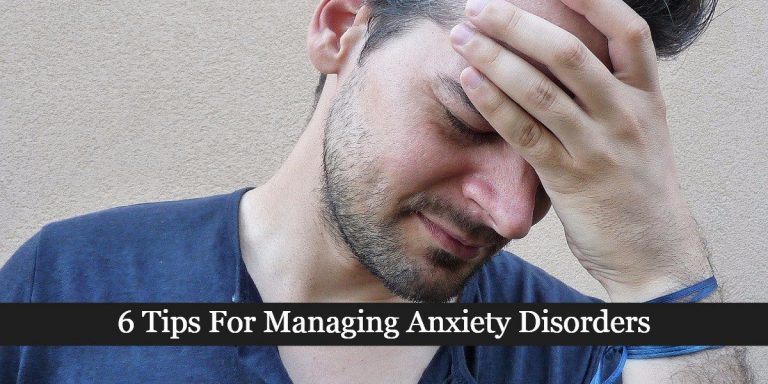 Anxiety disorders have become increasingly common, with at least 25% of the population experiencing an anxiety-related disorder during their lifetime. Anxiety can be the result of a range of different factors, including physical illness, emotional difficulties, painful memories and mental health problems. Successful treatment of an anxiety disorder will depend on the cause, but there are several things you can do to help manage the condition.
Anxiety disorders have become increasingly common, with at least 25% of the population experiencing an anxiety-related disorder during their lifetime. Anxiety can be the result of a range of different factors, including physical illness, emotional difficulties, painful memories and mental health problems. Successful treatment of an anxiety disorder will depend on the cause, but there are several things you can do to help manage the condition.
Eat a Balanced Diet
Eating a balanced diet is important for managing anxiety disorders, as lack of essential vitamins, minerals and other nutrients can have a negative impact on mental health and may even cause anxiety symptoms. In addition, some foods, such as turkey, leafy green vegetables and blueberries, can have a calming effect on the body and mind, helping to reduce overall anxiety levels.
Restrict Stimulants
Stimulants, including coffee, tea, cola, energy drinks and other products containing caffeine, can interfere with the body’s ability to relax, resulting in physical tension and racing thoughts. Excess sugar intake, alcohol, street drugs and even chocolate can also act as stimulants and prevent relaxation. Avoid stimulants as much as possible, especially in the evening, as they can also affect sleep patterns.
Identify Triggers
Anxiety triggers are wide and varied, but most people are able to identify a few triggers for their symptoms. Emotional triggers, such as feeling tired, overwhelmed or depressed, are common, but physical triggers can also cause anxiety symptoms. Food allergies, dehydration, low blood sugar levels and some health conditions can all be responsible for anxiety. Once you have identified a trigger, you can take steps to address the problem.
Take Regular Exercise
Regular exercise has been shown to help reduce symptoms associated with many different health conditions, both physical and mental. Regular exercise boosts brain function and helps to stabilize mood, reducing overall anxiety symptoms. Walking, running and cycling are all great forms of regular exercise, as they come with the added benefits of fresh air and sunlight. Alternatively, there are plenty of exercise classes available for those wanting to socialize while tending to their health and fitness.

Learn to Relax
Relaxation is an integral part of any treatment for anxiety disorders. Meditation, visualization techniques, paced breathing and progressive muscle relaxation are popular ways to relax. If you prefer to combine relaxation with physical activity, yoga, dancing and even gardening can help to reduce your anxiety levels. Make time every day for at least one activity that feels pleasurable and leaves you feeling calm.
Seek Help
Talking therapies and cognitive therapies can be highly effective in treating anxiety disorders, particularly when combined with self-help strategies. If your budget doesn’t stretch to therapy sessions, there are plenty of peer support groups and forums available online. In addition, there may be support groups with regular meetings in your local area. Talking to other people about your experience of anxiety is one of the best ways to speed up the recovery process.
Learning to manage anxiety disorders can take time and patience, but self-help strategies can be highly effective in reducing anxiety symptoms. Making just a few simple lifestyle changes can make a big difference to the outlook of long-term anxiety disorders.








